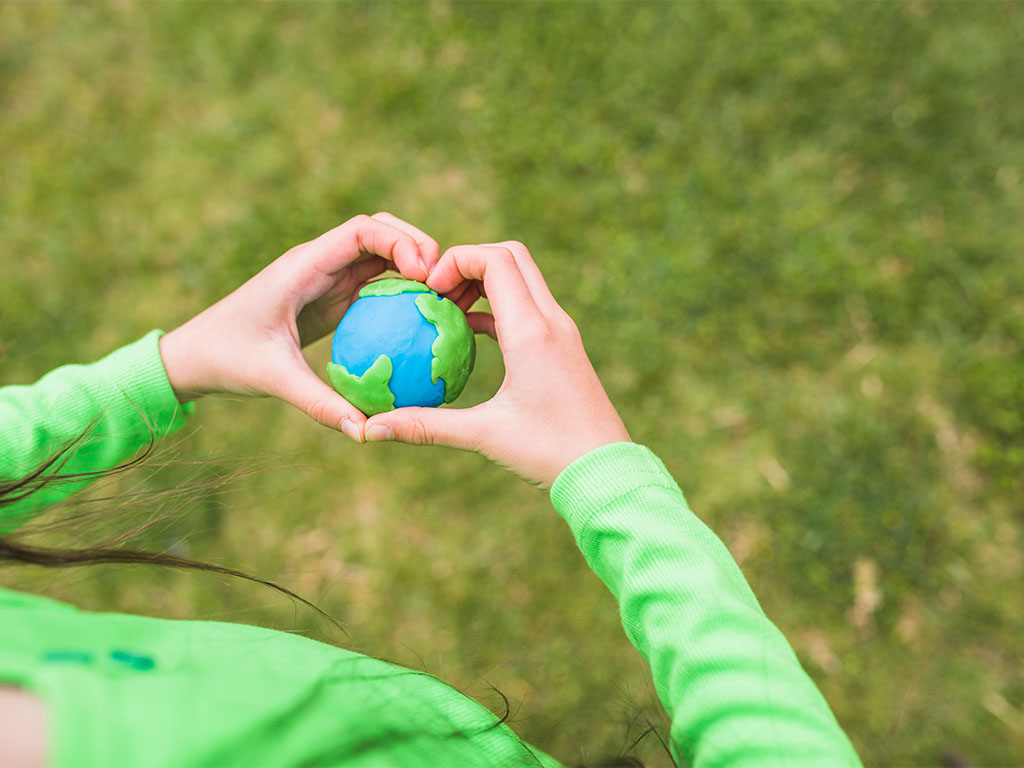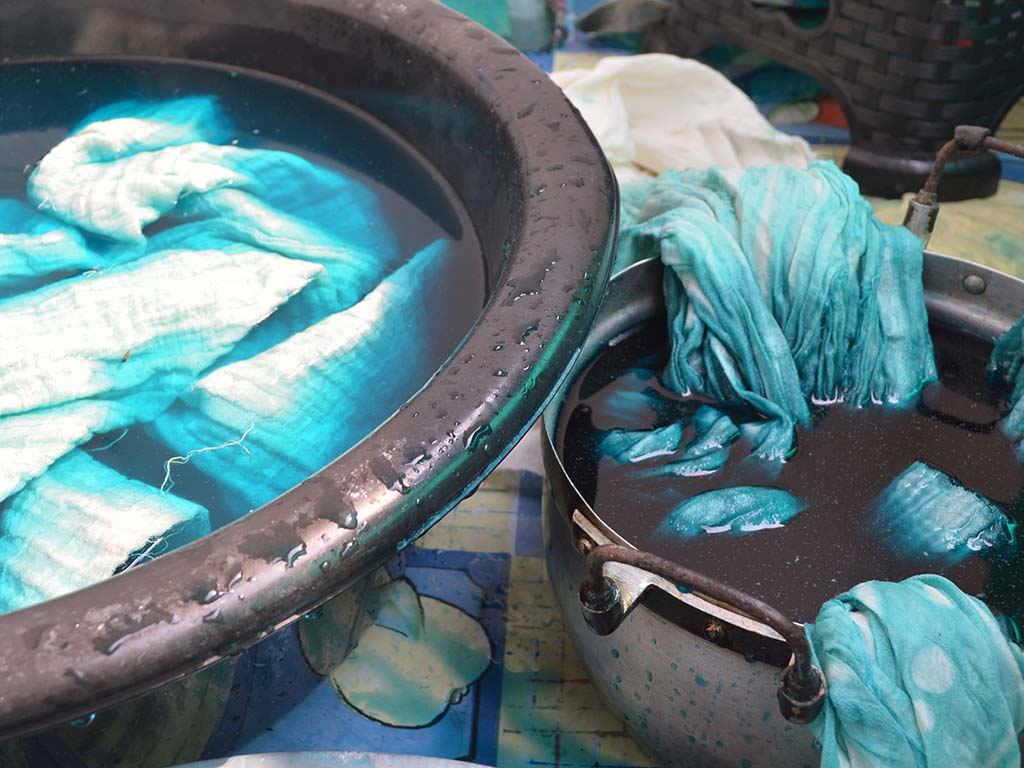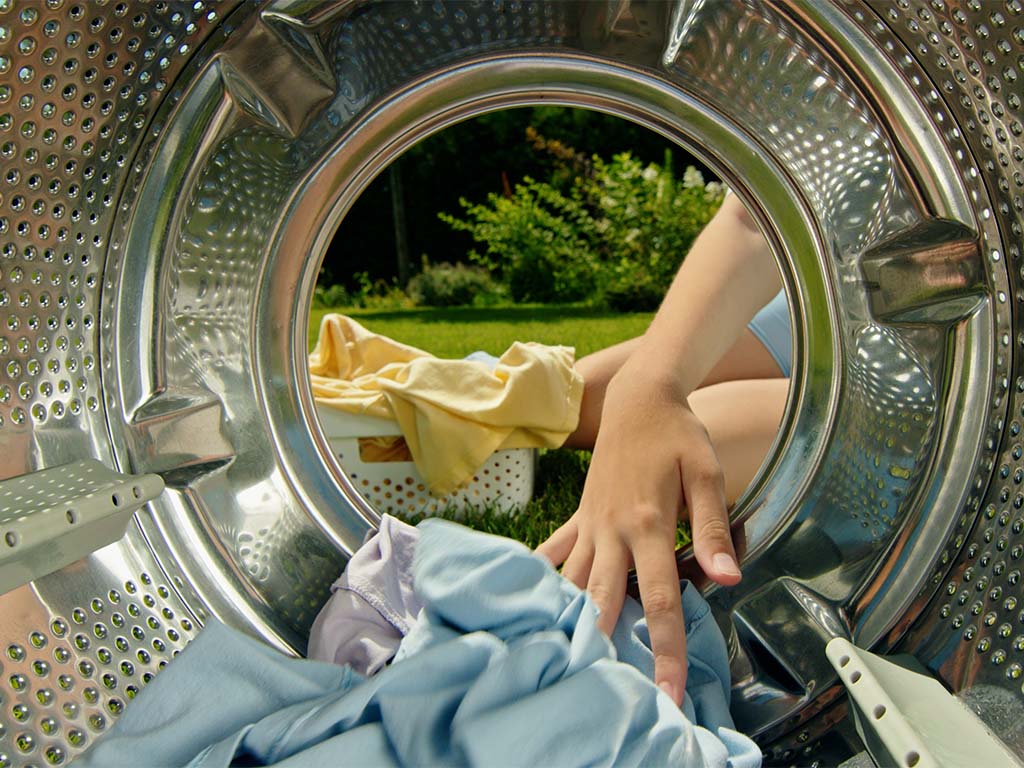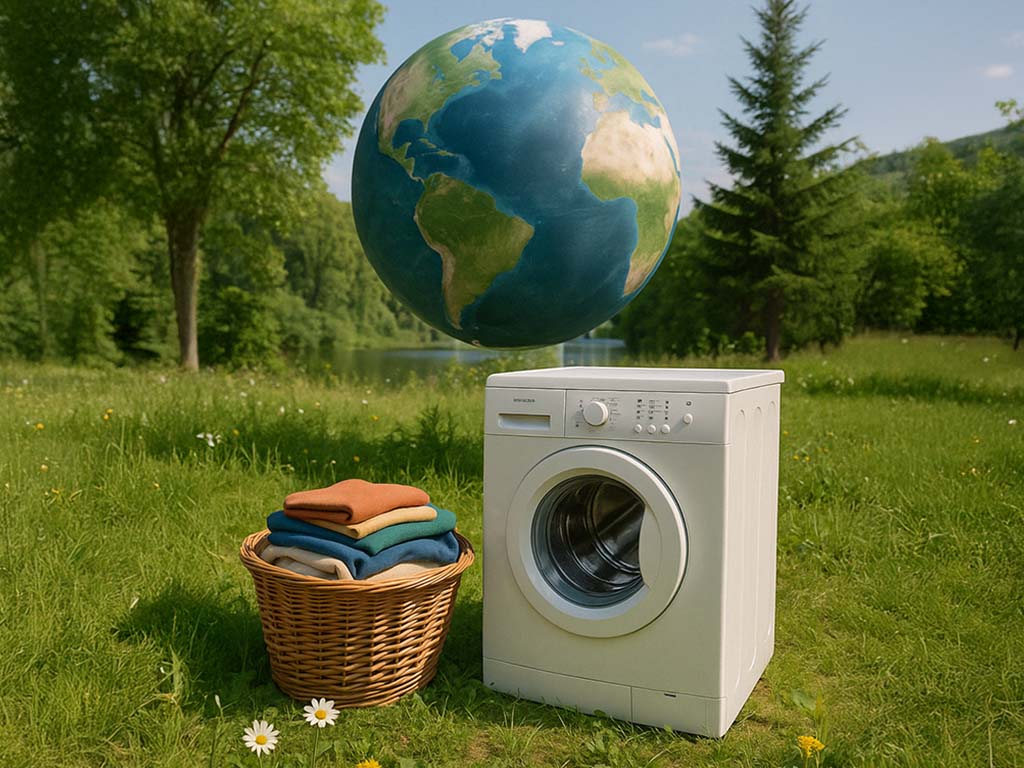
Earth Day is the perfect time to reflect on how each of us can do our part to protect the planet. One easy yet powerful step is rethinking the way we do laundry. Eco-friendly washing is a smart approach to caring for our clothes that reduces harm to the environment and keeps our health in check. It’s not just about going green for the sake of it – it’s about making choices that are kinder to the Earth and to ourselves. Let’s take a closer look at why it’s high time we turned over a new leaf and embraced eco-conscious laundry habits, along with the many benefits they bring.
Historically, laundry was at its least eco-friendly in the second half of the 20th century, especially between 1950 and 1980. During this time, the chemical industry was booming, and mass production of synthetic detergents took off. While these products improved washing performance, they also had a significant negative impact on the environment.

Pre-Industrial Era (up to the 18th century) – Eco-Friendly Washing
Laundry was mostly done by hand and was naturally eco-friendly, as people used natural materials:
- wood ash to make lye,
- soap made from fat and lye,
- herbs (e.g. lavender) for fragrance and disinfection.
The used laundry water was released back into nature, but without significant pollution thanks to the use of natural ingredients.
Industrial Revolution (18th–19th Century) – The Beginning of Problems
The first environmental issues related to laundry began with the introduction of sodium-based soaps and synthetic dyes. This marked a turning point in laundry history, as it allowed for more effective removal of dirt and stains. Unfortunately, alongside this advancement came the rise of industrial laundries, which significantly increased water and energy consumption.
This had a negative impact on the environment, as wastewater began to contain larger amounts of chemicals. There were no filters in place, so the pollution of water streams was visible to the naked eye. The only option left was to start looking for more eco-friendly alternatives in laundry and textile care.
1950 – 1980: The Golden Age of the Chemical Industry – An Ecological Disaster
Although the effort for more eco-friendly laundry practices was strong, it focused mainly on addressing and masking the consequences of non-eco-friendly washing. The greatest negative impact on nature came from the mass production and use of synthetic detergents containing:
- phosphates – they promoted algae growth in water streams (eutrophication),
- optical brighteners – synthetic substances that left residues on clothing and in the environment,
- chlorine – used in bleaches and toxic to aquatic organisms,
- synthetic fragrances – they did not degrade naturally in the environment.
Energy consumption soared due to electric washing machines and dryers, which became a common household item. Washing at high temperatures (60–90°C) consumed vast amounts of electricity and water.

From 1990 to Present – A Return to More Eco-Friendly Washing
In the 1990s, the environmental consequences of chemical laundry practices began to be discussed, and the gradual reduction of phosphates in detergents started in the European Union. Additionally, there was an increase in:
- the development of eco-friendly laundry gels and laundry perfumes based on plant ingredients,
- modern washing machines that allowed washing at low temperatures (30–40°C) with lower water consumption,
- an increase in interest in laundry sheets, laundry nuts, and eco-friendly gels as gentler alternatives.
At the same time, testing began, where consumer organizations tested products like laundry nuts (or soap nuts). In 2009, the German consumer organization Stiftung Warentest tested laundry nuts and found that their cleaning effect was comparable to washing with plain water. Consumers, therefore, sought alternatives that balanced the ecological impact with the cleaning effectiveness of the products.
Myths About Eco-Friendly Washing
Skeptics who refuse to consider the impact of their actions on nature—living by the motto 'let the world burn after I'm done'—try to convince us that eco-friendly washing has:
- Lower effectiveness: Many people believe that eco-friendly products aren’t as effective as those with strong chemicals. However, modern eco-friendly detergents can effectively remove dirt and stains.
- Higher price: While some eco-friendly products may be more expensive, they are often much more concentrated. It’s more a matter of habit—using less product. At the same time, higher concentration means less packaging is used, which is another bit of good news for the environment.
- Limited availability: Today, eco-friendly laundry detergents are widely available both in stores and online, making them easy to purchase. What’s more, shopping online lets you read reviews of different products and choose those whose effectiveness has been praised by people like you.
Why is Eco-friendly Washing Important?
Conventional laundry detergents often contain chemicals that can be harmful to the environment. After washing, these substances enter wastewater systems and eventually make their way into nature, where they can:
- Pollute water streams
- Disrupt ecosystems
- Accumulate in the environment
Moreover, our bodies are becoming increasingly sensitive. Allergies and intolerances are more common, and we often turn to eco-friendly options to avoid:
- allergic reactions and skin irritation,
- respiratory issues,
- hormonal imbalances.
Benefits of Eco-Friendly Washing
Switching to eco-friendly washing brings a variety of benefits:
- Eco-friendly laundry detergents are biodegradable and free from harmful chemicals, reducing water and soil pollution.
- Natural ingredients lower the risk of allergies and skin irritation.
- Eco-friendly washing allows for washing at lower temperatures with less water, saving energy and natural resources.
- Gentle washing without harsh chemicals extends the lifespan of clothing and preserves its colours.

How to Switch to Eco-Friendly Washing
If you want to start using eco-friendly washing, consider the following steps:
- Choose Eco-Friendly Laundry Detergents: Look for products with eco-certification that do not contain phosphates, chlorine, synthetic fragrances, or dyes.
- Using Natural Alternatives: Baking soda, vinegar, lemon juice, and alcohol are effective and eco-friendly options for washing.
- Optimize Your Washing: Wash at lower temperatures and avoid overusing laundry detergents.
- Care for the Washing Machine: Clean the washing machine regularly with natural products to prevent the buildup of dirt and odour.
- Air Drying: If possible, air dry your laundry instead of using a dryer, saving energy and extending the lifespan of your clothing.
Still hesitant? Ask us about the products in our range and read reviews from our satisfied customers.
